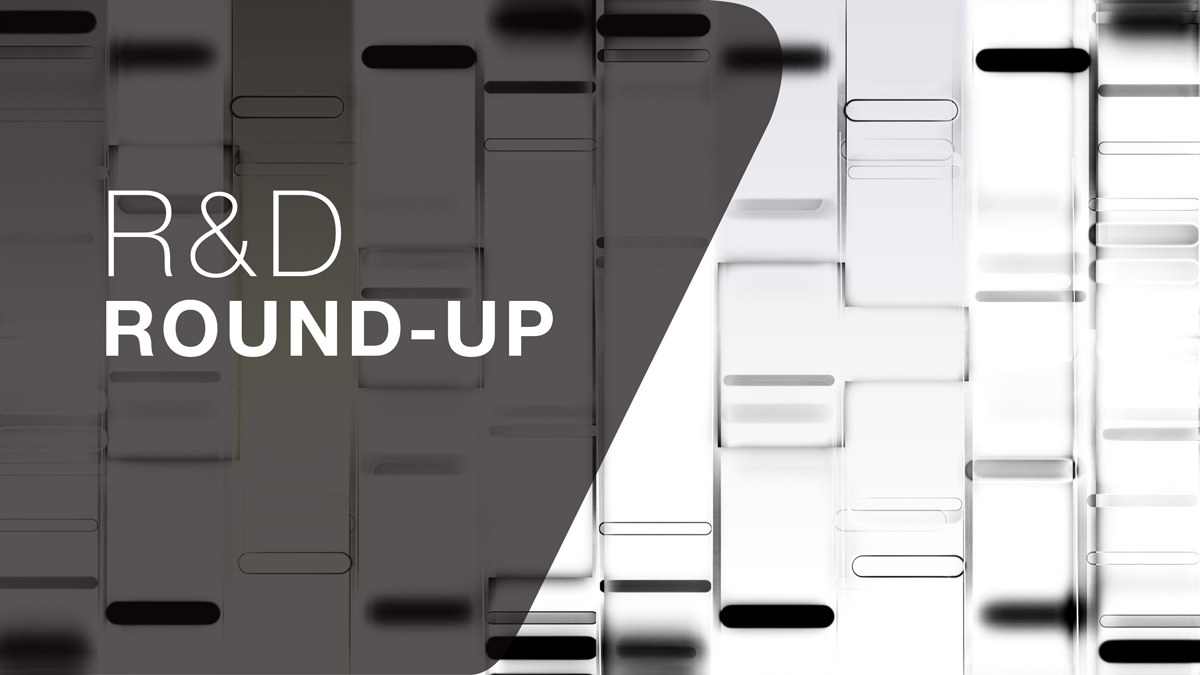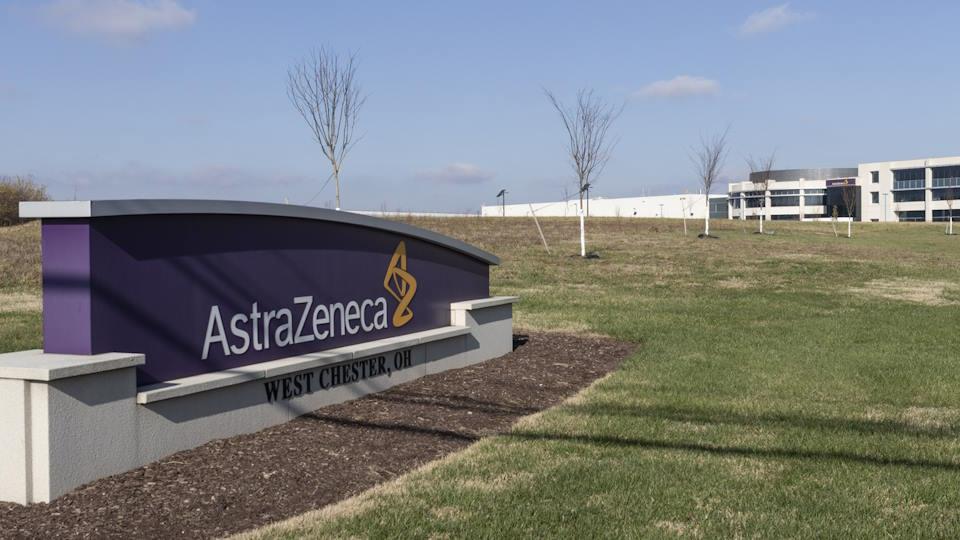R&D Roundup: Pharma gets in on the biotech boom

Some good news for the UK industry in turbulent times is always welcome, and several announcement this month showed us why the biotech sector in the country is looking extremely promising going into the next few years.
A new report found that the number of R&D companies has increased 65% since 2016 amid soaring annual investment of more than £2 billion.
The UK government has selected life sciences as one of its industries to support as part of its industrial strategy, and the latest figures from investment manager Downing LLP suggest it has backed a winner despite the uncertainties caused by Brexit.
Findings from the analysis show annual investment in biotech reached £2.2 billion in 2018, and three new companies in the sector have been incorporated every working day during the first two months of 2019.
Analysis of official data from the Companies House register indicates that 3,456 active companies are currently involved in biotechnology research and development (R&D) activities.
Findings follow record investment in the UK biotech sector during 2018, with figures from the UK BioIndustry Association (BIA) and Informa Pharma Intelligence revealing the sector raised an unprecedented £2.2bn from investors in 2018: up 85% from 2017.
Venture capital has contributed 51% of UK biotech funding from 2016-2018, increasing by 63% from £681 million in 2016 to £1.1 billion in 2018.
While private limited companies make up the majority of active businesses in the sector – 96% in Q1 2019, up from 95% in Q1 2016 – Downing’s analysis also shows the number of public limited companies (PLCs) has increased by 40% from 30 to 42 as biotech firms experience continued growth and success.
One of the more successful British biotechs in recent years has been RNAi speclisaits Alnylam, who scored big this month as Regeneron has signed a collaboration deal potentially worth $1 billion with the company to develop and commercialise drugs targeting eye, central nervous system (CNS), and liver diseases.
Under the terms of the agreement, Regeneron will make a $400 million upfront payment to Alnylam and purchase $400 million of Alnylam equity. Alnylam is eligible to receive up to an additional $200 million in milestone payments upon achievement of certain criteria during early clinical development for the eye and CNS programmes.
The companies plan to advance programmes directed to 30 targets and introduce many into clinical development during the initial five-year discovery period, which includes an option to extend.
The news came on the same day that Alnylam announced it had agreed with Sanofi to conclude the research and option phase of their 2014 RNAi therapeutics alliance for developing drugs for rare genetic diseases.
The $700 million alliance gives Genzyme/Sanofi a 12% share of Alnylam, and access to its drug candidates. The company can opt in to rare genetic disease programmes for commercialisation in territories outside the United States, Canada, and Western Europe, and has one right to a global licence.
One of the more successful British biotechs in recent years has been RNAi speclisaits Alnylam, who scored big this month as Regeneron has signed a collaboration deal potentially worth $1 billion with the company to develop and commercialise drugs targeting eye, central nervous system (CNS), and liver diseases.
Under the terms of the agreement, Regeneron will make a $400 million upfront payment to Alnylam and purchase $400 million of Alnylam equity. Alnylam is eligible to receive up to an additional $200 million in milestone payments upon achievement of certain criteria during early clinical development for the eye and CNS programmes.
The companies plan to advance programmes directed to 30 targets and introduce many into clinical development during the initial five-year discovery period, which includes an option to extend.
The news came on the same day that Alnylam announced it had agreed with Sanofi to conclude the research and option phase of their 2014 RNAi therapeutics alliance for developing drugs for rare genetic diseases.
The $700 million alliance gives Genzyme/Sanofi a 12% share of Alnylam, and access to its drug candidates. The company can opt in to rare genetic disease programmes for commercialisation in territories outside the United States, Canada, and Western Europe, and has one right to a global licence.
Around the world
And it wasn’t just the UK that saw several biotech deals announced this month.
Alexion announced partnerships with Denmark’s Zealand Pharma and Sweden’s Affibody, to research peptides for complement-mediated diseases and a rare autoimmune disease drug, respectively.
The deal with Zealand Pharma builds on Alexion’s presence in rare diseases related to the complement system.
Alexion’s complement inhibitor injection Soliris (eculizumab) is already an established blockbuster and the longer-lasting Ultomiris (ravulizumab) is expected to bring in several billion dollars in the coming years.
Zealand will grant Alexion exclusive worldwide rights for one preclinical target, with the option for three additional targets in the complement pathway.
The partnership with Affibody will look at co-developing the company’s ABY-039 for rare immunoglobulin G-mediated autoimmune diseases.
Currently in phase 1 development, ABY-039 is a bivalent antibody-mimetic that targets the neonatal Fc receptor (FcRn).
ABY-039 has been specifically designed to combine Affibody’s protein therapies and Albumod albumin-binding technology to achieve a long half-life, which, along with its small size provides the potential for less frequent, convenient, at-home subcutaneous administration.
Meanwhile, Novartis revealed that it is to buy US biotech IFM Tre in a deal worth up to $1.575 billion, adding a potential drug for the fatty liver disease known as NASH to its pipeline.
IFM Tre is a subsidiary of cancer biotech IFM Therapeutics, which was bought by Bristol-Myers Squibb in 2017 in a deal worth $2.3 billion.
At the time IFM’s non-oncology assets were spun out into two biotechs – IFM Tre and IFM Due, focusing on NLRP3 antagonists, and cGAS/STING antagonists respectively.
The acquisition gives Novartis one clinical and two preclinical drugs targeting the NLRP3 inflammasome, which could provide therapies for several metabolic, fibrotic, autoimmune, and neurologic diseases.
NLRP3 drugs are of interest to pharma and biotech firms researching drugs for a range of diseases.
These include non-alcoholic steatohepatitis (NASH), the fatty liver disease for which there is no approved treatment.
Finally, Roche said this month that it plans to withdraw and refile its pre-merger notification for the proposed Spark Therapeutics acquisition next week, kicking off a new 15-day waiting period that will expire on 25 April and will extend the tender deadline until around 2 May.
The company made the move after revealing that only around 29% of shares had been tendered by Spark shareholders by close of business on 2 April. Roche needs to get at least a majority of outstanding Spark stock for the deal to go through, and the less-than-impressive take-up suggests Spark’s shareholders aren’t cock-a-hoop about the terms of the deal.
In fact, Reuters suggests that Spark is facing at least three lawsuits from disgruntled investors who say the offer undervalues the company, even though it has the unanimous approval of both companies’ boards.
Roche and Spark are still waiting for the Federal Trade Commission (FTC) to give a green light to the transaction, which is another reason for the extension.











